The Transat bakerly Begins Monday
Published on May 1st, 2016
Twenty-four competitive entries, plus Loick Peyron sailing Pen Duick II, will set sail May 2 on the world’s oldest solo transatlantic race from Plymouth, England to New York City: The Transat bakerly. The 14th edition of the 3,050nm race has attracted entrants from Giant Ultimes, flying Multi50s, powerful IMOCA60s and hardy Class40s.
The weather for the start looks moderate, the fleet just managing to miss a cold front moving towards Plymouth and bringing with it rain and strong winds as The Transat bakerly Race Director Gilles Chiorri explained.
“We’re looking good in terms of the weather tomorrow,” he revealed. “We’re expecting 10 to 15 knots from the south west, then swinging round to the west just ahead of the start – we may even have some sun.”
“The moderate conditions mean that all 25 boats can start the passage together. The 1nm start line will be split between monohulls and multihulls.”
The first night of racing is looking relatively straight forward for the skippers after rounding Eddystone Lighthouse, giving them time to adjust and find their pace before they get stuck into proper Atlantic sailing.
For the leading boats, that moment will come quickly, just 36 hours into the race as Chiorri explained.
“The routing is showing a northerly course past Ireland toward the north Atlantic. Going this way will be fast, furious and wet. By Tuesday evening, the first boats will already be experiencing some quite harsh conditions with strong winds, big seas and gusts of up to 45 knots – this will be a real test for the Ultimes.”
Although the routing points north, there is also the option of a slower, but milder course. As they enter the western Channel, the skippers will have a decision to make – go north and push the boat hard and fast through heavy conditions very early on. Or go the long way round, preserving the boat and their energy and reducing the risk of damage.
“It will be interesting to see which boats take which route,” the Race Director continued. “This decision won’t just be based on the ability of the boats to take on bigger conditions, but also the way the sailors are approaching the race – the skippers need to find the limit of their machine.”
The decision made here will tell us how the sailors have prepared for the race, some going hard and fast and others setting their navigation to avoid top wind speeds and rough sea states – separating the tortoises and the hares.
The night before the race in Plymouth, there is a thick fog hanging over the harbour and apprehension in the air as the skippers ready their minds for the race and concentrate on what they are about to face.
Even for the world’s best ocean racers, the 3,050nm upwind slog through grueling Atlantic conditions will be an ongoing battle against the elements, their own physical and mental limits and each other – they don’t call The Transat the toughest transatlantic race for nothing!
About The Transat
The OSTAR (Observer Singlehanded Trans-Atlantic Race) was created in 1960 by a handful of pioneering sailors. The race was organised every four years by the Royal Western Yacht Club (RWYC) from 1960 through to the 2000 event, albeit with a lot of involvement from the French event organiser Pen Duick in the 90s, in order to cater for the demands of the professional campaigns that dominated the event.
After the 2000 edition, OC Sport stepped in to develop the event and acquired the rights to the professional part. OC Sport organised The Transat in 2004 and 2008, the 2012 edition was deferred at the request of IMOCA (the largest competing class).
The RWYC continues to organise a solo transatlantic race for Corinthian and non-professional sailors that is still known as the (O)STAR,. This race usually falls a year after the professional big boat race i.e. 2005, 2009, 2013, 2017. Both the amateur Yacht Club event and The Transat have the right to link to the history of the original race created in 1960, and to the rich history it has produced.
The first race was competed by just a handful of pioneering sailors including Francis Chichester and Blondie Hasler who coined the phrase: “One man, one boat, the ocean.” There has been tragedy, dramatic rescues and exceptional drama since the race began in 1960. Over time The Transat, as it is known today, has evolved and now serves the professional end of offshore sailing. But there are few modern day races that can reflect on such a long and outstanding history.
Monohull IMOCA 60 record: 12 days, 11 hours and 45 minutes set by Loick Peyron (FRA) on board Gitana in 2008. Multihull 60ft record: 8 days, 8 hours, 29 minutes set by Michel Desjoyeaux (FRA) on board Géant in 2004.
Source: The Transat




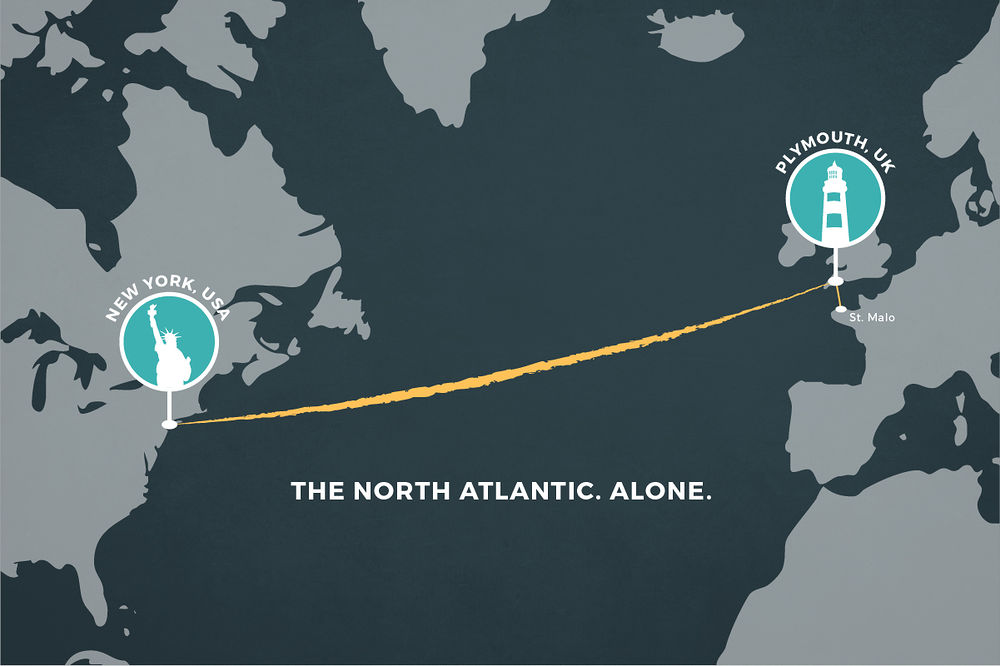

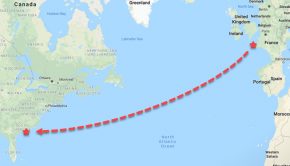
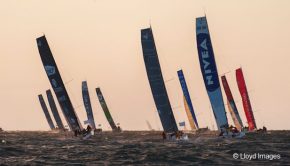
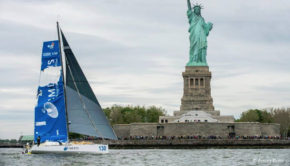
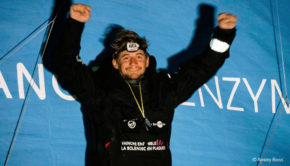
 We’ll keep your information safe.
We’ll keep your information safe.